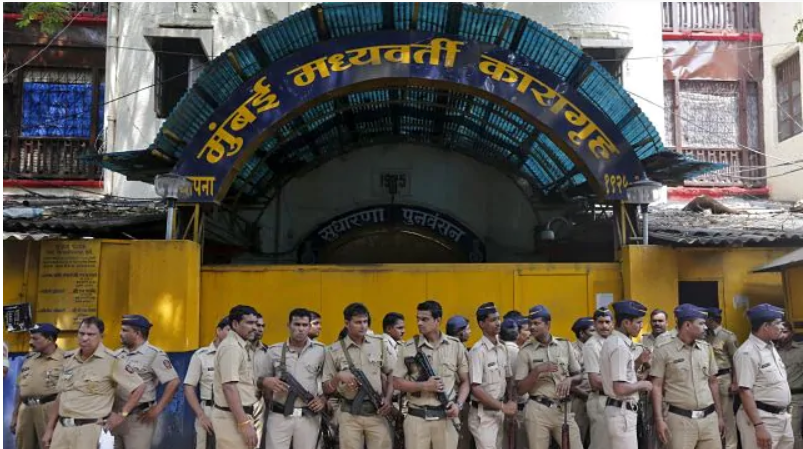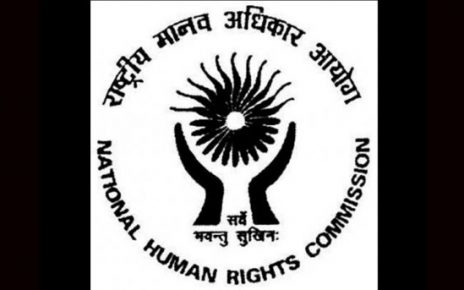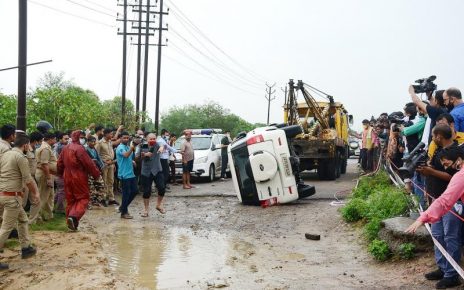Firstpost
07 July 2020
In a depressing continuation of the widespread practice of custodial torture, P Jayaraj, 59, and J Fenix, 31, died gruesome deaths in Thoothukudi last month
The outrage and debates around the chilling custodial deaths of a father-son duo in Tamil Nadu sound a bit too familiar to Sayyad Khwaja Hussain, 50. “It has been happening for years. But nobody seems to care,” he says.
Hussain has seen it up close. He has even been at the centre of this discourse. He is the elder brother of Sayyad Khwaja Yunus, an engineer, who allegedly died in the custody of Mumbai Police in January 2003 at the age of 27. “We keep having the same debates after a case but nothing changes on the ground,” says Hussain, “And if the families want justice, the legal formalities take up your life.”
Seventeen years after Yunus’ death, Hussain and his 72-year old mother, Asiya Begum, still await justice. “It has been a painful and troubling journey,” recalls Hussain in a telephonic interview from his hometown of Parbhani — 500 kilometers from Mumbai. “My brother was an innocent man. He studied hard, became an engineer and managed to get a job in Dubai. He had come back for a month on a break. That is when he was picked up.”
In the first week of December 2002, a bomb went off in Mumbai’s Ghatkopar area in which two people died and around 40 were injured. In the last week of December, the Mumbai Police arrested Yunus in connection with the bomb blast. A few days later, he died allegedly as a result of police torture in custody.
Yunus was among the 18 the Mumbai Police had arrested. In 2004, nine of them were discharged for lack of evidence, and eight others were acquitted. The real culprits of the blast, therefore, are still unknown.
“My son would have been a free man along with the others had he been alive today,” says Asiya, “Ever since his death, our lives have never been the same.”
A year after Yunus died, his father, Sayyed Khwaja Ayyub, a retired government servant, had a heart attack and passed away. “We had been running from pillar to post to seek justice for my brother,” notes Hussain, “My father had been anxious. He was under a lot of stress. From the day my brother died, my father’s health continued to deteriorate. The entire thing destroyed our family. And we still haven’t received closure.”
Far from closure, the four police officers — suspended in March 2004 — accused in the custodial death of Yunus were reinstated at work in the first week of June 2020. They still remain accused of his murder and destruction of evidence.
The main accused, Sachin Waze, an encounter specialist, had even joined the Shiv Sena — the party currently leading the coalition government in Maharashtra — in 2007. The other three accused in the case are constables Rajendra Tiwari, Sunil Desai and Rajaram Nikam.
While the police maintains that Yunus tried to escape, one of his then co-accused testified in front of the trial court that he was severely tortured in prison. In 2003, investigations by the state CID had found the police’s escape claim to be false, and Yunus had indeed died in police custody. The trial has been dragging its feet since 2009.
Soon after their reinstatement, the Mumbai Police commissioner got a contempt notice on behalf of Asiya for reinstating the cops without a disciplinary enquiry as directed by the Bombay High Court in 2004. The High Court has sought a reply from the Maharashtra government.
“This is not what justice looks like,” Asiya says, “To reinstate them is unfair. They have not faced any serious consequences. It is a cruel joke on us.”
Yunus’ family has thrown everything they could at pursuing their court cases since 2003. There is a matter pending in the trial court. There are two cases in the high court and there is one in the Supreme Court. “We don’t come from a rich family,” admits Hussain, “We used up my father’s savings on the case. We have made incessant trips from Parbhani to Mumbai. We have incurred the expenses of train tickets. Besides, we don’t have any relatives in Mumbai. So we have had to spend money for our stay and food every time we were in Mumbai.”
But the system has tested their patience at every juncture. “If the authorities were serious, the case would have concluded by now,” declares Hussain, “But they don’t want justice to be done. This is why the custodial deaths keep happening in India.”
In the last week of June, The National Campaign Against Torture (NCAT) in its report noted that India recorded a staggering five deaths in custody per day in 2019. According to the report, “1,731 persons died in custody during 2019”, and 1,606 deaths happened in judicial custody while 125 deaths took place in police custody.
Among some of the ghastliest methods used to torture inmates in 2019, were “hammering iron nails in the body, applying roller on legs and burning, hitting in private parts, electric shock, pouring petrol and applying chilly power in private parts, forcing to perform oral sex,” stated Paritosh Chakma, Director of the NCAT, in the press release.
According to Yunus’ then co-accused, who was an eyewitness, Yunus was stripped, beaten with a belt and assaulted until he vomited blood. Seventeen years after that, in a depressing continuation of the widespread, and often glorified, practice of custodial torture, P Jayaraj, 59, and J Fenix, 31, died an equally gruesome death. In Tamil Nadu’s Thoothukudi, the father and son were arrested for violating the lockdown rules by keeping their mobile accessories shop open beyond permissible hours. Reports suggested that they were sodomised and sexually assaulted before they died.
According to the NCAT report, “Of the 125 deaths in police custody, 75 persons or 60 percent belonged to the poor and marginalised communities.”
Hussain said it is one of those things that make people lose their faith in the system. “Those who are supposed to protect our rights are violating it,” he says. “Everyday, somebody dies of custodial torture in India and we still do nothing about it. It is simple. If the police works honestly, it will find genuine culprits. If it wants to target the poor and minorities, this will go on.”
The Khwaja Yunus case, many say, remains a blot on the Mumbai Police. But his family hasn’t lost hope. “There is one court above every other court,” said Hussain. “That court always stands up for the people. We have faith in god. Bhagwaan ke ghar der hai magar andher nahi.”




